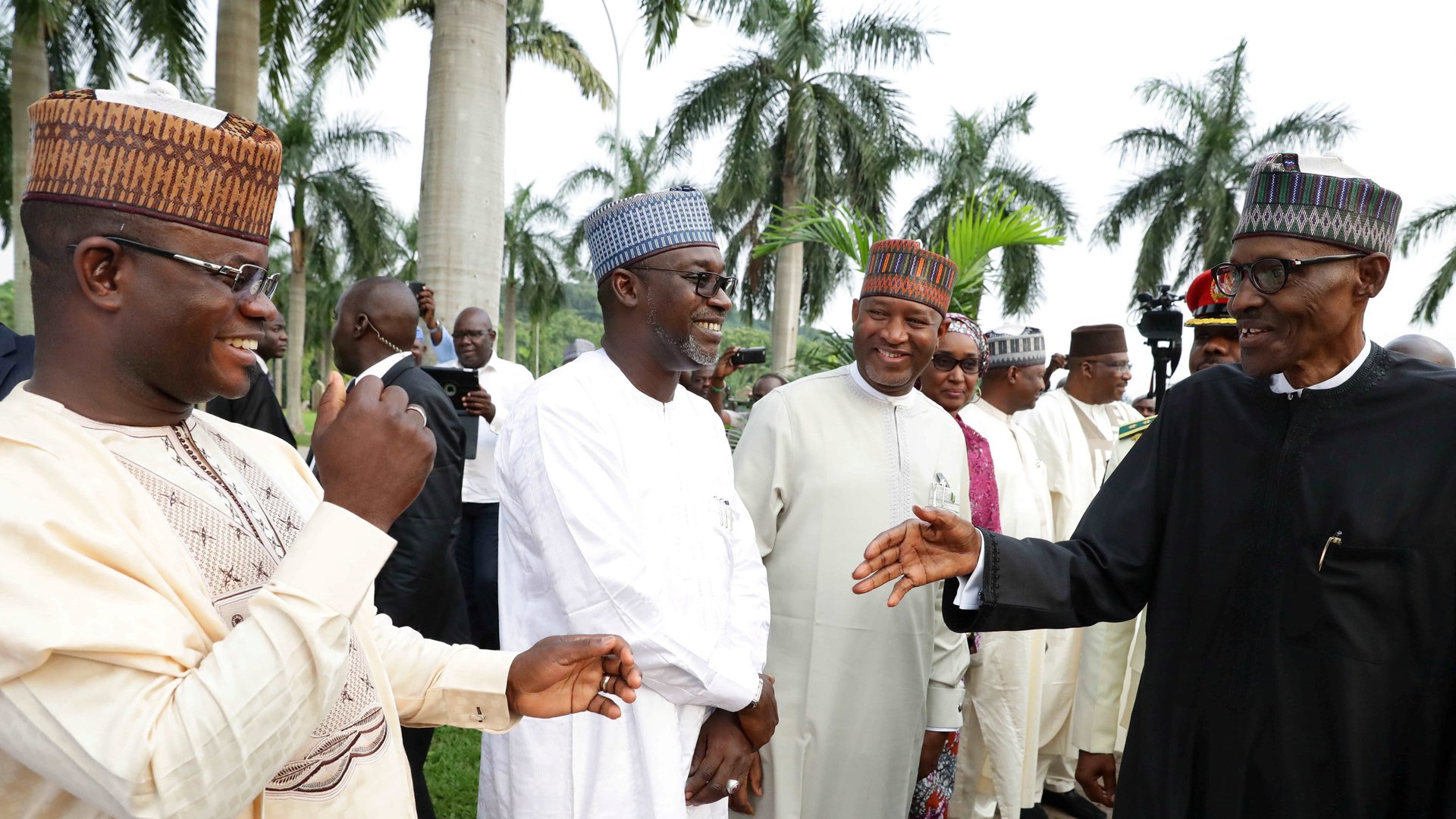Nigeria’s president is back home after 104 days of medical vacation in London
*This post has been updated


*This post has been updated
After more than three months away on medical vacation, Nigeria’s president Buhari has returned home, the presidency has announced on Twitter.
President Buhari had been in London for three months (104 days) treating an undisclosed ailment. It was the second time in 2017 president Buhari had been away for an extended period on medical vacation. Back in February, president Buhari left for London and was away for 50 days. Upon his return, president Buhari stated the possibility of returning to London for further treatment.
Nigerians will be hoping for more clarity on the president’s health status and the possibility of further treatment when he speaks via a scheduled national broadcast on Monday (Aug. 21) morning. Buhari’s return follows on the heels of growing agitation for clarity on his health status. In the past week, there have been protests in Abuja, Nigeria’s capital city, demanding that the president should “resume or resign.”
In his absence vice president Yemi Osinbajo has been running the country and has gone out of his way to be clear that he is simply carrying out Buhari’s agenda in order to ease political infighting among his own party members and beyond. In 2017, Buhari has been away on medical leave for a combined 154 days of 230 days.
The habit of African leaders taking leaves of absence to seek medical treatment abroad is in stark contrast to the lives of their fellow citizens who have to cope with inadequate and costly medical facilities, particularly in sub Saharan Africa.
Buhari is expected to resume office once he’s returned but he faces a tough task winning back much of the public goodwill he enjoyed after taking office in May 2015. Under Buhari’s watch, Nigeria’s economy has slipped into recession for the first time in two decades and his anti-corruption stance, a key issue on which he campaigned, has been viewed as somewhat partisan. Several high profile Nigerians have been charged to court but Nigeria’s anti-corruption agency has secured few convictions.
Nigeria’s fight against the Boko Haram insurgency has been more fruitful under Buhari with large swathes of territory recovered from the militant sect. The army has also secured the release of hundreds of abductees,including some of the Chibok girls, from Boko Haram’s captivity. But the government has appeared in too much of a haste to claim victory.
In June, Nigeria’s army chief claimed Boko Haram had been defeated, but data suggests otherwise. Between January and June 2017, Boko Haram attacks by Boko Haram had resulted in 200 civilian deaths. Indeed, only a month later, some members of staff the University of Maiduguri, the largest in Nigeria’s northeast, were killed and kidnapped during an oil exploration mission in the Lake Chad region.